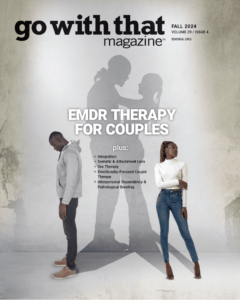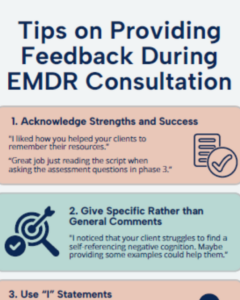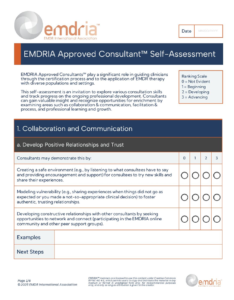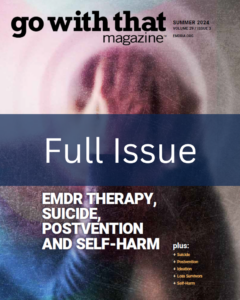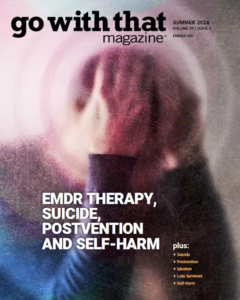Integrating EMDR and Couples Therapy
Integrating EMDR therapy into couples therapy is a promising new trend in psychotherapy, though it presents challenges.
Read MoreIntegrating EMDR in Emotionally-Focused Couple Therapy
This article explores how individual EMDR therapy could be modified for couples to possibly expand its potential for healing.
Read MoreSex Therapy Treatment for a Couple in a Sexless Relationship: EMDR and CBT Therapy, the Perfect Therapeutic Couple
Combining EMDR and CBT can be effective as a duo, and even referred to as a match made in heaven or the perfect therapeutic couple.
Read MoreTreating Interpersonal Dependency and Pathological Bonding Patterns (ID-PBP) with EMDR
This article examines how EMDR can help heal the effects of interpersonal dependency and pathological bonding.
Read MoreTips on Providing Feedback During EMDR Consultation
An infographic for EMDR Consultants™ and Consultants-in-Training™ describing 7 tips on providing feedback during EMDR consultation.
Read MoreEMDRIA Approved Consultant™ Self-Assessment
This self-assessment is an invitation to explore various consultation skills and track ongoing professional development for EMDRIA Approved Consultants™.
Read MoreEMDR Therapy, Suicide, Postvention and Self-Harm (Go With That Magazine™ Issue)
Find out how EMDR therapy can help clients alleviate symptoms that contribute to suicidal ideation in this issue of Go With That Magazine™.
Read MoreEMDR Therapy and Suicide
My research on suicide & trauma uncovered that those who experienced trauma are 15 times more likely to die by suicide—a clear role for EMDR.
Read MoreEMDR and Suicide Postvention
Suicide postvention is the actions taken after a death by suicide, which includes working with the community, individuals, and families.
Read MoreCounselor’s Corner: EMDR and Ketamine-Assisted Therapy
EMDR therapists respond to the question “I had a client bring up adding Ketamine use to our sessions…Does anyone have any resources?”
Read MoreCommunity Voices: EMDR and Suicide Risk
EMDR therapists respond to how aspects of a client’s culture/race are meaningful as a resource/challenge in using EMDR with clients who present with suicide risk.
Read More
